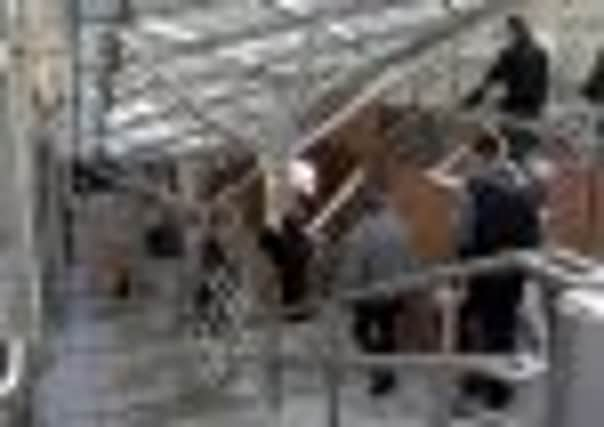Waverley Steps escalator breaks down after a day


One of the six sparkling new escalators at Waverley Steps, part of a £7 million revamp project, broke down within 24 hours of the grand unveiling.
Operator Network Rail blamed a faulty part and said the electronic staircase would be back in use this morning.
Advertisement
Hide AdAdvertisement
Hide AdTrain passenger Pat Ash, 60, a teacher from Portobello, said: “The escalators have been a long time coming so it’s not good when an escalator is out of action immediately.”
James Grant, 58, an SQA worker from Leith Links, said: “It doesn’t sound as if Network Rail have done their quality assurance.
“I came down them yesterday morning and there were OK, but the escalator seems a bit slow – maybe that’s for safety reasons.”
This morning, the escalator was operating as normal.
Before the escalators were unveiled, commuters heading for their train had to negotiate the notorious 72 steps at the entrance. The steps, which had been in use for 145 years, often created a ‘wind tunnel’ effect in bad weather.
The year-long construction project was completed on time.
But the unveiling came five years after it should have because of delays caused by objections to the scheme.
The rebuilt steps have been narrowed to just over half their width, with three banks of adjacent escalators providing a new option for the 40ft ascent.
The steps have been remodelled into eight shorter flights from the previous five, with a central handrail added. Before the refurbishment some 14,000 people a day took the steps – 40 per cent of station users – a figure which is now expected to increase. In a separate part of the project, to be completed in July, two 16-person lifts will take passengers between the station and mall roof, with a ramp up to Princes Street.
The lifts have been re-sited away from the steps following an objection from the Balmoral Hotel over their impact on views of Edinburgh Castle.